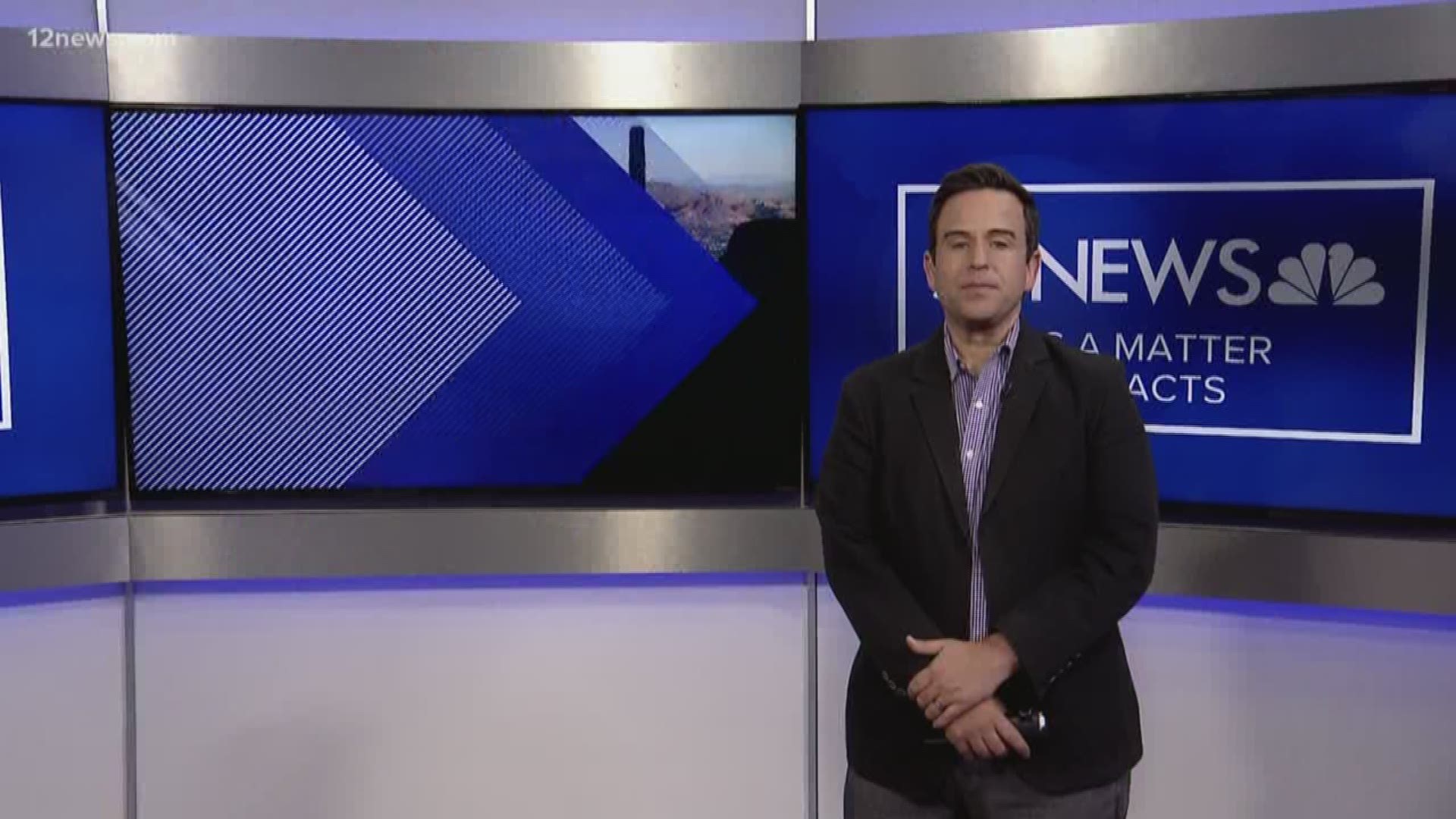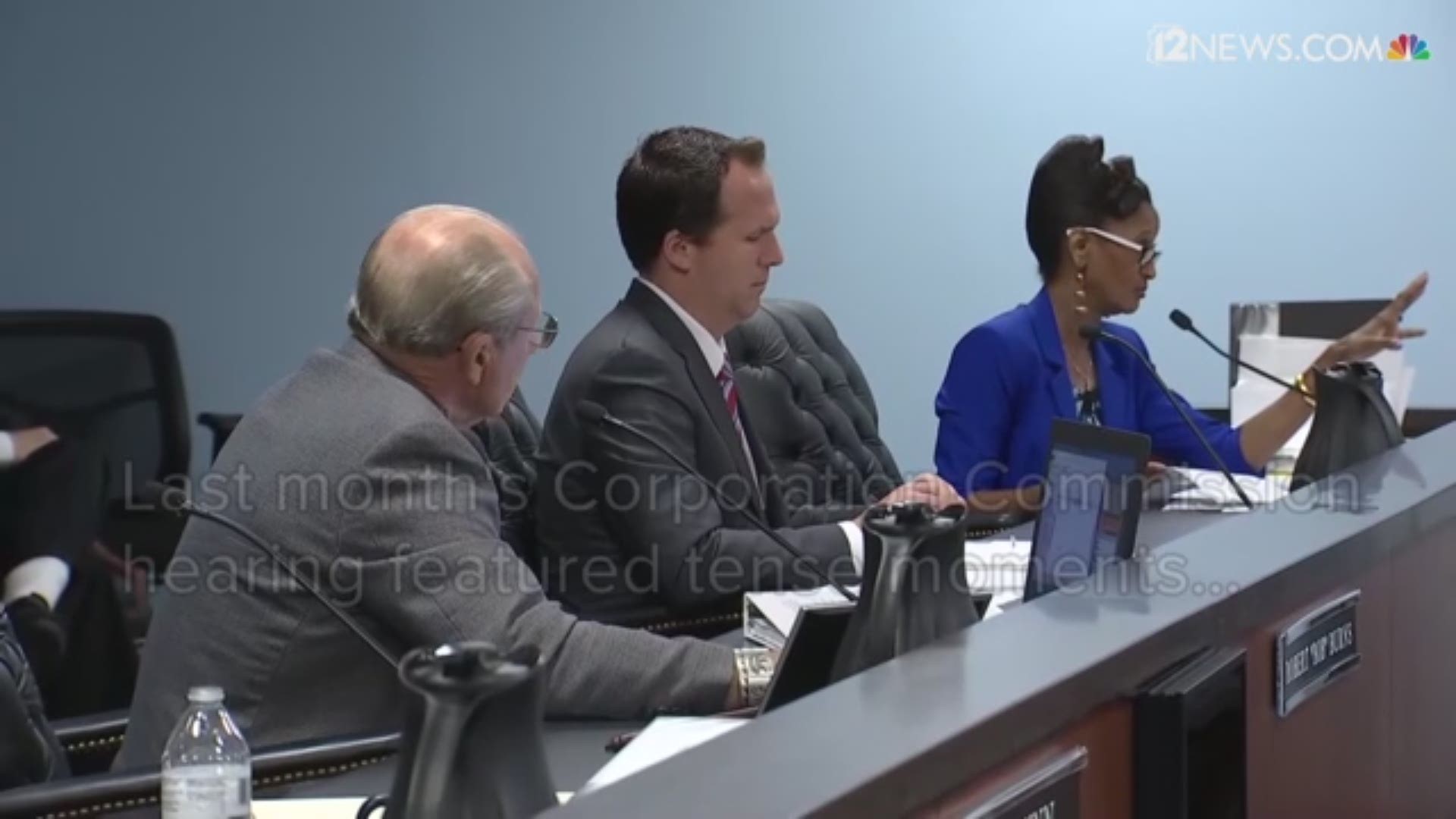PHOENIX — An unaltered independent “rate review” of APS further details the prosperous position the monopoly utility finds itself in and a belief among most customers that their electricity bills are not reasonable.
The 3rd party report is considered a snapshot audit of APS. It was produced by Overland Consulting at the request of the Arizona Corporation Commission for $250,000. Commission Staff unredacted the report after 12 News and The ASU First Amendment Clinic fought for its release.
An edited version of the audit was released in June by the Arizona Corporation Commission Staff. While the Commission’s version contained many pages of content nearly identical to the original version, it left out some details.
Among the findings and verbiage in the Overland audit that were not included in the ACC Staff’s edited version are:
- The 2018 actual Return on Equity (ROE) of APS was 10.45%, which is in excess of the ACC authorized ROE of 10%.
- With adjustor revenues factored in, APS has earned $77 million more than expected, with over 80% of that increase from residential customers.
- APS’s internal surveys between 2015-2018 reflect eroding satisfaction among customers on various metrics, findings that are contrary to APS public statements and testimony by CEO Don Brandt.
-Certain adjustors were rolled into base rates in 2017, only to return to pre-rate increase levels as separate line items on customer bills the following year.
-The most significant problem with APS’s customer outreach plan was “the lack of full disclosure” with respect to the rate increase and actual results customers could experience (The edited Staff report replaced the phrase “full disclosure” with “specificity.”)
-The settlement agreement approved by Staff and the Commission in 2017 was “not typical” because it simultaneously implemented a rate increase and overhauled tariffs, creating even more variations in electricity bills than advertised (The edited Staff report deleted the phrase “not typical” and instead stated that such an agreement had never been done in Arizona.)
-The advertised impact of APS bills being an average “4.5%” or $6 increase was not accurate because it only took into account base revenues. A proper impact analysis must take into account revenues from adjustor mechanisms that represent additional costs to customers.
APS did not respond to 12 News for comment.
A consumer advocate accuses ACC Staff of burying crucial details from the original audit in order to downplay APS over earning.
“The Overland Audit Report contradicted virtually every position Staff had asserted during the (Stacey) Champion Complaint,” wrote Abhay Padgaonkar in a statement about the Overland Report. “So as not to have to eat crow and publicly admit that the rates were, in fact, unjust and unreasonable, as Champion had claimed, Staff ostensibly sanitized the Audit Report's language, cherrypicked the audit findings to include in its summary, and buried clear evidence, including significant APS over earning.”
The edited version produced by ACC Staff only states APS over-earned by $6.7 million.
In response to Padgaonkar’s allegation, a spokesperson for ACC Staff told 12 News the Overland Report was a “draft” that included some numbers that could not be verified so therefore were not included in the report.
“Draft reports oftentimes contain hypotheticals, assumptions and analyses by the consultant which are not reflective of the Commission’s or Staff’s internal practices and procedures,” said Commission lobbyist Nick Debus in a written statement to 12 News. “Staff was not biased in the numbers taken from the draft Overland Report to present in its Report.”
Padgaonkar was an expert witness for the complainant in last year’s rate challenge who has produced his own consultant reports for global corporations. He said it would have been more appropriate for Staff to release the report in its unvarnished form and add its own comments or disagreements.
The Commission made crucial decisions based on the edited report, while the unedited Overland Report was concealed from the public. The Commission voted on the fate of the APS rate plan (it stopped short of scrapping it and instead ordered a new rate case) and it ordered a series of new educational outreach measures for APS to implement.
“It raises questions in my mind if Staff was transparent and more objective would things have changed?” Padgaonkar said.
Corporation Commissioner Bob Burns told 12 News he wouldn’t have voted differently on the APS rate challenge if he had access to all the findings of the Overland Report.
“It appears they (APS) are over earning and that is why we ordered a new rate case,” Burns said.
Burns said if he had endorsed the more drastic measure of rescinding the current settlement agreement, it likely would have resulted in a lengthy lawsuit.
“The route we are taking is the route that makes the most sense,” Burns said.
If indeed APS’s Return on Equity in 2018 was 10.45%, an estimated excess amount of $26 million, Burns agreed it would be appropriate to determine how that money can be paid back to customers.
“That is certainly something we should look at,” Burns said.
Padgaonkar accuses Burns and the Commission of taking the easy way out. Arizona State Statute gives the Commission clear authority to rescind a prior decision if, after holding hearings, it is “in the public interest.” The administrative law judge overseeing the rate challenge, and even Burns himself, have stated previously that a determining factor of whether the current rate structure is just and reasonable is if evidence shows APS is earning more than authorized.
However, Corporation Commission Staff stated in January 2019 that the rate review was “for informational purposes only” and was not intended to be used to determine if the rate settlement should be rescinded.
The audit report also concluded APS’s customer education and outreach plan (CEOP) was ineffective, largely because the rate structure created by the settlement tried to do too many things at once. In other words, the rate structure that Staff and other parties endorsed in 2017 was flawed, according to the Overland Report.
Staff endorsed the settlement agreement and according to the way it is written, it is required to defend the settlement in the future.
“There was an inherent conflict of interest in my mind,” Padgaonkar said, regarding Staff’s obligation to defend the agreement. Padgaonkar worries whether Staff can be fair in future decisions.
“Is the Staff going to have the ratepayers’ back?” he said.


